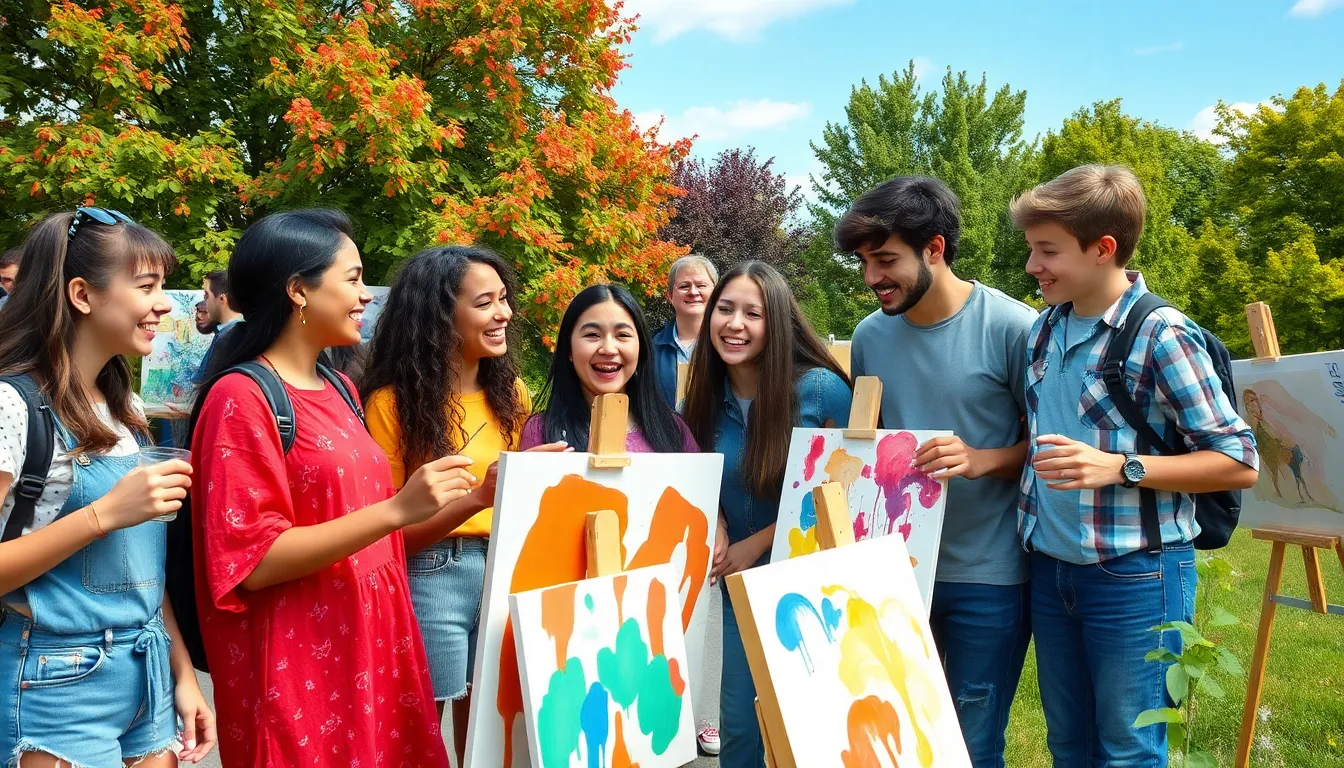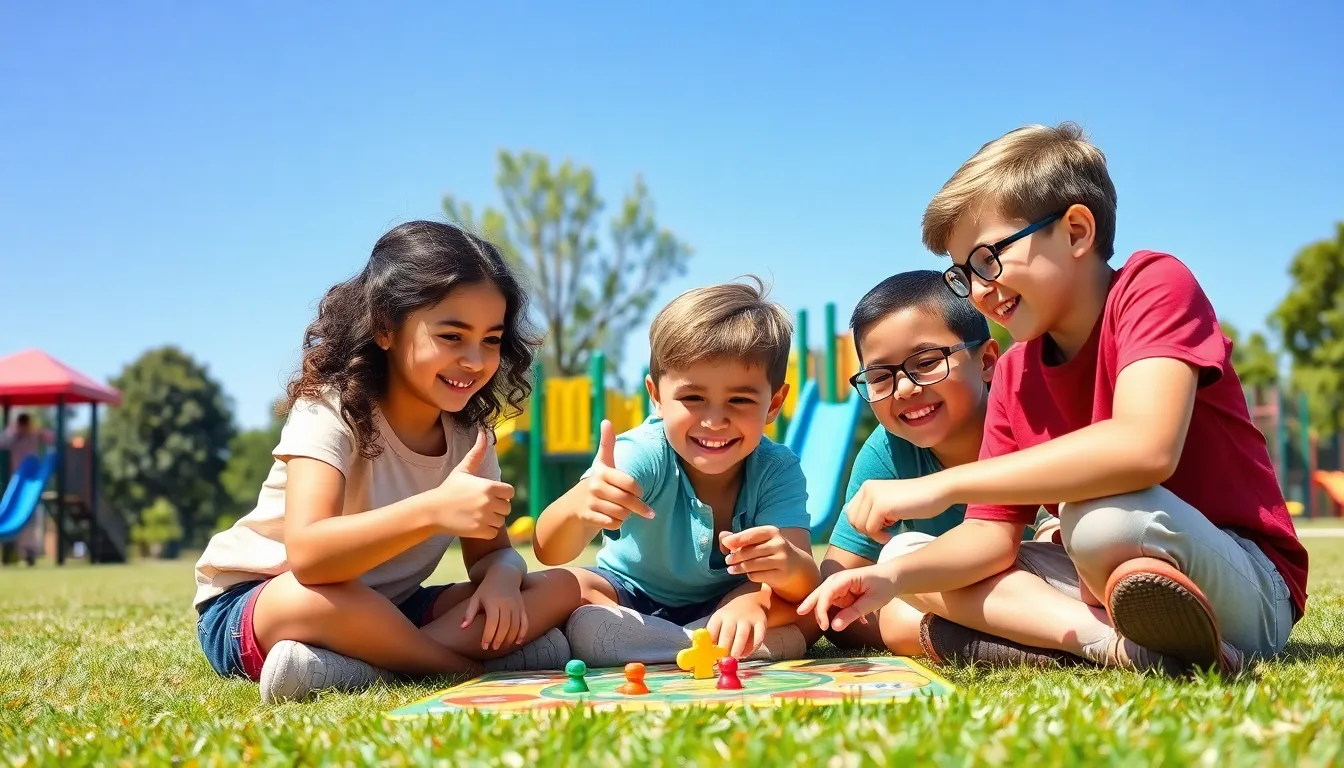Navigating the teenage years can feel like trying to solve a Rubik’s Cube blindfolded. Between school pressures, social dynamics, and the occasional existential crisis, it’s no wonder mental health often takes a backseat. But fear not! Engaging in fun and effective mental health activities can turn that frown upside down and help teens thrive.
Table of Contents
ToggleImportance Of Mental Health Activities For Teens
Engaging in mental health activities fosters emotional resilience in teens. Activities that are enjoyable and purposeful help reduce anxiety and stress, creating a more balanced mindset. Participation in structured activities supports the development of coping skills essential for navigating life’s challenges.
Promoting mental health doesn’t just enhance well-being; it improves academic performance as well. Research shows that teens who actively take part in mental health initiatives experience higher levels of concentration and retention. Healthy mental states translate into more significant engagement in schoolwork and social interactions.
Social connections play a vital role in a teenager’s development. By participating in group activities, teens strengthen their sense of belonging and build supportive networks. Consequently, social activities also enhance communication skills, leading to healthier relationships with peers and family members.
Physical activities such as sports, yoga and outdoor adventures contribute positively to mental health. These activities release endorphins which promote feelings of happiness and relaxation. Regular physical engagement not only boosts mood but also improves physical health, creating a holistic approach to well-being.
Finally, mental health activities provide a safe space for self-exploration. Creative outlets like art, writing, or music allow teens to express emotions effectively. Expressive activities serve as valuable tools for processing experiences, enhancing self-awareness, and fostering personal growth. Engaging in these activities equips teens with strategies to manage stress and cultivate a healthy mindset.
Types Of Mental Health Activities

Engaging in various mental health activities supports teenagers’ well-being and builds resilience. The following activities contribute positively to their mental health.
Creative Activities
Art and music serve as powerful outlets for self-expression among teens. Whether painting, drawing, or playing an instrument, these creative activities allow them to process emotions and explore their identities. Workshops, classes, or even casual gatherings can help foster creativity and encourage collaboration. Writing poetry or creative stories also promotes reflection and understanding of personal experiences. Overall, creativity enhances emotional intelligence, enabling healthier communication and connection with others.
Physical Activities
Physical activity plays a crucial role in maintaining mental health. Engaging in sports, yoga, or group fitness classes boosts endorphin levels, which elevate mood and reduce stress. Regular exercise not only improves physical health but also strengthens mental resilience. Whether participating in team sports or solo workouts, movement encourages a sense of achievement and discipline. Joining local sports leagues or fitness clubs also fosters social connections, which are vital for emotional support and belonging.
Mindfulness Practices
Mindfulness practices help teens manage stress and foster a sense of calm. Techniques such as meditation, deep breathing, and guided imagery promote self-awareness and emotional regulation. Participating in mindfulness workshops or using apps can introduce structured methods for incorporating mindfulness into everyday life. Mindful walking or nature observation encourages teens to connect with their surroundings while fostering relaxation. These practices enhance focus and contribute to overall mental well-being.
Benefits Of Engaging In These Activities
Engaging in mental health activities offers significant benefits for teenagers. These activities enhance emotional resilience and overall well-being.
Emotional Well-Being
Improved emotional well-being is a primary benefit of participating in mental health activities. Activities like art and music create spaces for self-expression, allowing teens to articulate feelings and explore identities. Engaging in mindfulness practices such as meditation leads to enhanced stress management, promoting calmness and clarity. Moreover, physical activities generate endorphins, which elevate moods and reduce feelings of anxiety. Consistent involvement in these activities fosters healthy coping strategies, essential for navigating life’s challenges.
Social Connection
Strengthened social connections represent another important advantage of engaging in mental health activities. Group activities encourage communication and teamwork, providing opportunities for teens to build relationships. Engaging with peers in sports or arts cultivates a sense of belonging. Supportive environments improve social skills and boost confidence, making it easier for teens to form connections. Additionally, shared experiences help alleviate feelings of isolation, promoting community and support. The importance of social interactions cannot be overstated, as they play a crucial role in a teen’s emotional development.
Tips For Implementing Activities
Creating an effective mental health activity requires thoughtful strategies. Prioritizing a supportive atmosphere encourages teens to engage meaningfully.
Creating A Supportive Environment
A welcoming setting enhances participation. Safety and comfort serve as essential components, allowing teens to express themselves freely. Consider arranging spaces that are inviting and non-judgmental. Incorporating soft lighting and comfortable seating can make notable differences. Furthermore, encouraging open communication about mental health builds trust. Teens feel more comfortable sharing experiences when discussions are normalized. Regularly providing positive feedback reinforces efforts and contributions. Creating rituals or routines, such as weekly check-ins, fosters consistency and reliability.
Encouraging Participation
Participation thrives on enthusiasm and involvement. Highlighting the benefits of activities—like improved mood and connections—attracts interest. Inviting teens to choose activities tailored to their preferences increases engagement. Options should range from art classes to sports and mindfulness sessions, addressing diverse interests. Utilizing peer leaders can also motivate participation; seeing friends involved often encourages others to join. Organizing fun challenges or group projects fosters teamwork and collaboration. Lastly, celebrating achievements, regardless of size, cultivates a sense of accomplishment and belonging.
Prioritizing mental health activities for teens is essential for their overall well-being. By engaging in creative outlets physical activities and mindfulness practices teens can develop resilience and coping skills that serve them throughout life. These activities not only enhance emotional health but also foster social connections and improve academic performance.
Creating a supportive environment encourages teens to participate and explore their interests. With the right guidance and resources teens can discover effective ways to manage stress and navigate challenges. Emphasizing the importance of mental health through enjoyable activities will empower them to thrive during these formative years.




